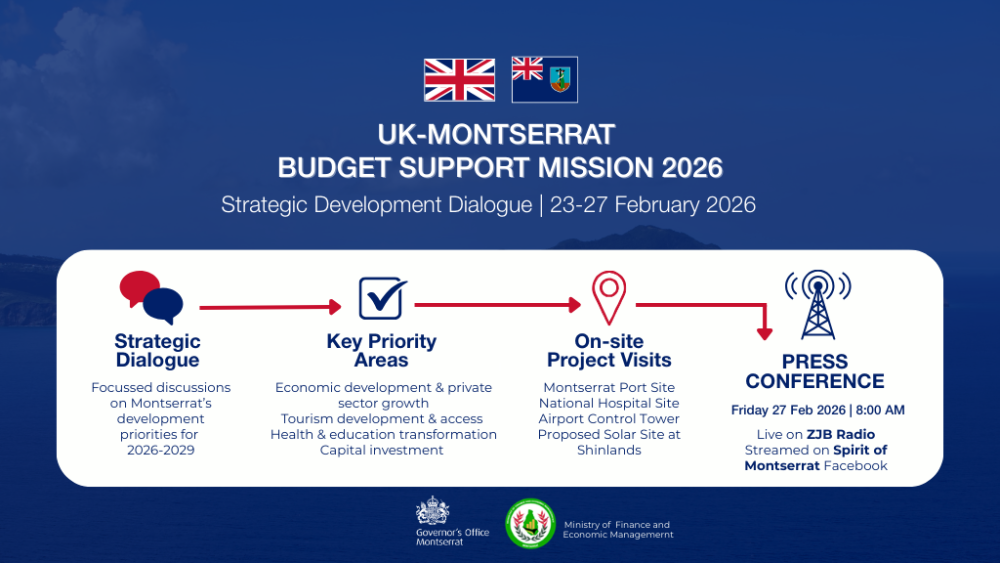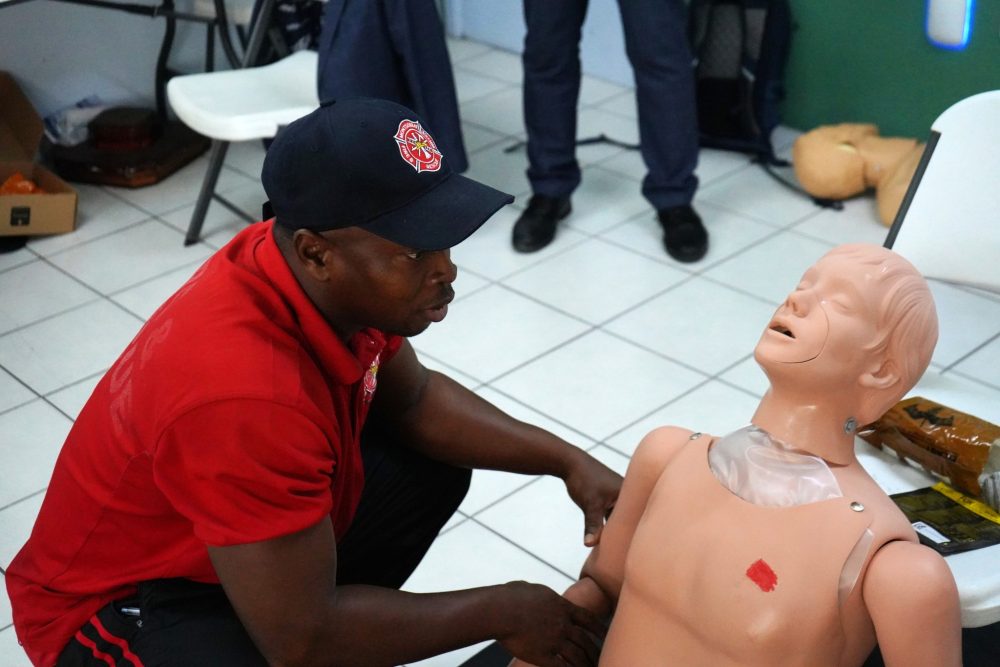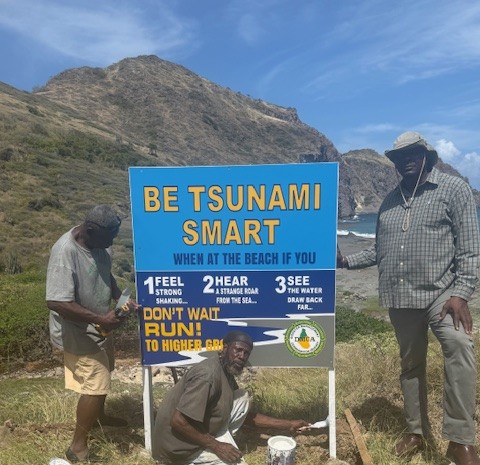
Officials on Montserrat have been meeting to discuss COVID 19 plans and preparations, as part of ongoing efforts to strengthen Montserrat’s state of readiness.
On Monday March 2, the National Influenza Pandemic and Preparedness Committee (NIPPPC) met to review the government’s action plan and risk mitigation for COVID-19, and to recap the evolving global and regional situation, a statement from the Government Information Unit read.
The meeting was chaired by the Permanent Secretary in the Ministry of Health and Social Services (MoHSS), Mrs. Camille Thomas-Gerald and included the Minister of Health Charles Krinon and Parliamentary Secretary, Mrs. Veronica Dorsette-Hector. The islands Chief Medical Officer (CMO) and Quarantine Authority, Dr. Sharra Greenway-Duberry, and other senior Health Officials presented updated information on the spread of the COVID 19 and the Ministry of Health’s plans related to screening, isolation and quarantine.
The NIPPPC discussed various scenarios and further actions and mitigation measures required from the various sectors, especially ahead of the St. Patrick’s Festival; which is a high tourist season for the island.
Officials from the Ministry of Health, Port Authority, Integrated Border Security, Customs and Excise, the Royal Montserrat Police Service (RMPS), Access Division, Airport and the Office of the Premier were engaged in the discussions.
Additionally, the Ministry of Health is also in communication with local non-governmental organizations (NGO’s) such as Red Cross, The Montserrat Association of Persons with Disabilities and the Montserrat Senior Citizens Association; to ensure that the most vulnerable in the community are protected. Throughout the week a number of key exercises occurred including completion of training of emergency personnel in the use of Personal Protective Equipment (PPE), continued distribution of educational literature and continued training in hand washing and proper sanitation of special interest groups such as children and care takers of the elderly.
Situational updates and strategic response meetings also continue with local and regional partners; Pan-American Health Organization (PAHO), Caribbean Public Health Agency (CARPHA) and Public Health England.
Discover more from Discover Montserrat
Subscribe to get the latest posts sent to your email.



